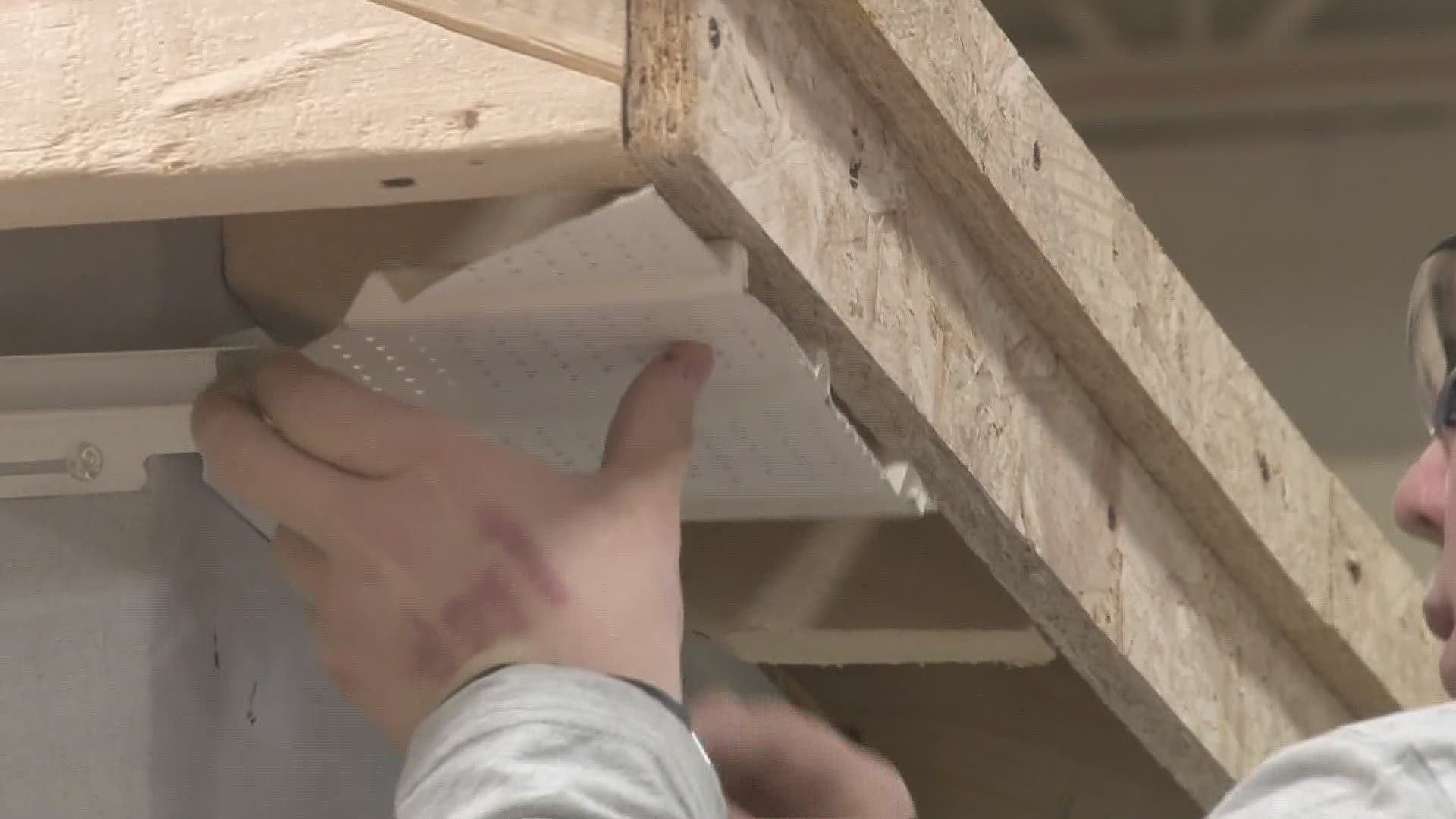BANGOR, Maine — Automotive, construction, culinary arts, law enforcement are just a few of the classes for high schoolers at the United Technologies Center in Bangor.
Hand-on classes that are mostly done through labs and first-hand activities.
"The biggest difference for us is that we're very hands-on and we're trying to teach a trade, for instance, it might be automotive, or it might be small engine repair, it might be video production in my case, but we are there to teach a trade, we try to give students a very hands-on experience," said Aaron Jackson, the video and audio production class instructor.
"This was probably the first year that I felt comfortable with my curriculum, with the teaching methods that I've learned... and then everything just got flipped on its head," said Jackson.
A class that uses professional equipment including cameras, light kits, tripods, and computers with editing software. But now due to COVID-19, Jackson has to find a way to teach his students the techniques they would normally learn inside the facility.
"It's been a little frustrating, but we've been finding different ways to work through it," said Tina Churchill, a video and audio production student at UTC.
"99% of the students have smartphones, and every smartphone has the ability to take video," said Jackson.
The professor modified all of his assignments to be shot with phones.
The first remote project? A silent film featuring "A day in the life of..."
Students got creative..sparked up their phones and used what they had to make it work.
"It didn't really make sense for me to sit here every day and instruct them when they can be doing the things that I'm asking them to do," said Jackson.
The reason why his class is now a hands-on project-based course.
Law Enforcement on another hand is a class that Kyle Smart now teaches virtually and at the same time.
"My morning class, they show up at 8:30 in the morning online just as they would if we were still at school...trying to keep a good routine down for them," said Smart.
"Mr. Smart is really good at bringing outside resources into us, so we've met a lot of police officers, game wardens, and people from the national guard," said MacKenzie Dore, a Law Enforcement student.
Smart instead is teaching law enforcement techniques like how to handcuff and do a DUI test through YouTube video tutorials, and implementing what they learned from his lectures and the videos with what they have at home.
"My goal is to have them find someone that is in their household with them and be able to demonstrate that they can put somebody through skills sobriety tests," said Smart.
Smart says he is trying to teach students what law enforcement is all about so that they can make an informed decision if they want to pursue a career before college.
But despite everything, students are learning skills they are going to use in their everyday lives.
"Working under different situations and still producing a good product, and learning different ways how to work around a situation," said Churchill.
And that's exactly what they're doing. Professors now finding unique ways to teach the students skills they would use in their futures.

